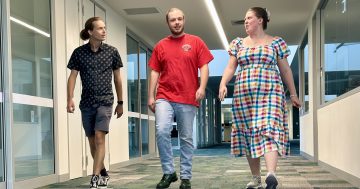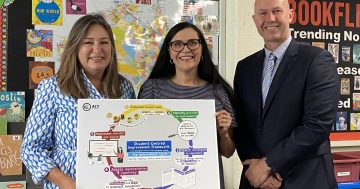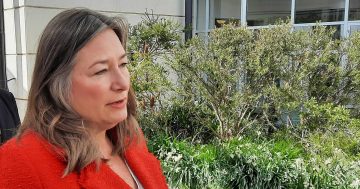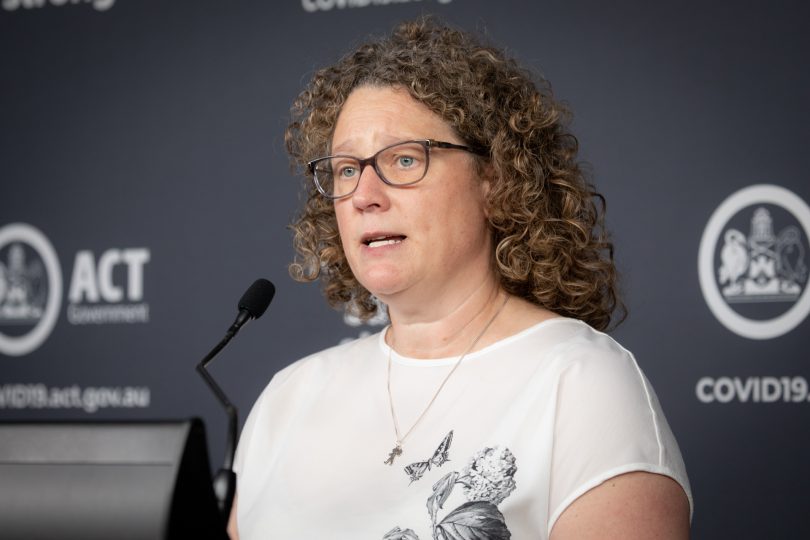
ACT Chief Health Officer Dr Kerryn Coleman said the teacher vax mandate may be dropped when students under 12 can be vaccinated. Photo: Michelle Kroll.
Chief Health Officer Dr Kerryn Coleman has indicated the vaccine mandate for education staff and teachers may be dropped when children younger than 12 can be vaccinated.
Speaking at a budget estimates hearings earlier this week, Dr Coleman told the committee that the public health direction which covers the vaccine mandates for teachers is, at this stage, valid only until the public health emergency is stood down.
The ACT’s public health emergency is scheduled to end on 14 November 2021.
She indicated that when children have an approved vaccine and a strong uptake, the risk-benefit analysis of mandating a vaccine for staff will shift.
The news comes after Charnwood-Dunlop primary school principal Rob Lans appeared in a video earlier this week alongside One Nation Senator Malcolm Roberts voicing his concerns about the vaccine mandate.
In a statement, Minister for Education Yvette Berry said Mr Lans will “now be taking some time out of the classroom”.
It’s unknown if he will return at this stage.
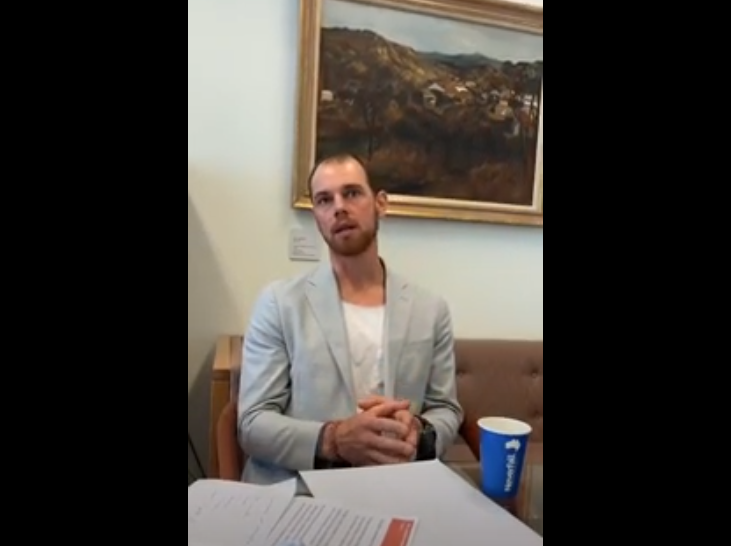
Charnwood-Dunlop school principal Rob Lans appeared in a video earlier this week expressing his concern about the vaccine mandate. Image: Screenshot.
However, it’s likely Mr Lans will not be the only teacher not returning to the classroom.
A group of at least 79 teachers may not be returning to work after they signed a letter addressed to the Education Directorate opposing the COVID-19 vaccine mandate.
A spokesperson for the Directorate said they were aware of reports of this letter but had not yet received a copy.
Ms Berry said in a statement that she wished to reassure the community that ACT school-based staff already have very high vaccination rates – with 97 per cent of staff who responded to a recent survey on track to full vaccination.
Dr Coleman has issued a public health direction that requires full vaccination against COVID-19 for staff working across early childhood education and care services, primary schools, out of school hours care, and specialist and flexible education settings for the rest of this year.
Proof of vaccination must be provided to employers, and a first dose is due by 1 November 2021, with a second by 29 November 2021.
Those staff who choose not to be vaccinated without an exemption will either be supported to work from home or redeployed, a spokesperson for the Directorate said earlier this week.
Parents will also not have the right to find out whether or not their child’s teacher is vaccinated.
With more students set to return to school on Monday, Dr Coleman told the budget estimates hearing she remained concerned about the “high-risk setting” that schools currently presented.
“The issue for our teachers is that under-12s are the only cohort that can’t be vaccinated,” she said.
Despite the likelihood that disease in children will be less severe given the international experience, Dr Coleman also said if enough children get infected, there will be sickness and the disease “will travel like wildfire”.
She said she had been “very keen” to limit the mandate to spaces only where under-12s will be. High school teachers, therefore, are not included in the mandate.
Year 11 and 12 students are already back on campus with pre-school to year twos and years six, nine and 10 to join them on Monday, 25 October.
All students will then go back to school on 1 November.
Speaking at the same budget estimates hearing yesterday, Minister for Health Rachel Stephen-Smith said consultation with the unions regarding wider vaccine mandates across the ACT Public Service (ACTPS) was underway.
Ms Stephen-Smith said such mandates, if they were to be instigated, would be different to the current ones as it would be a decision of work health and safety made by directors-general rather than a public health direction signed off by the Chief Health Officer.
She also told the committee the ACT was currently continuing to remain closely aligned to the Australian Health Protection Principal Committee (AHPCC) directions and had not gone as far as other jurisdictions with its vaccine mandate.
The Minister also indicated work is underway to amend the Public Health Act allowing the ACT Government to legislate on items such as vaccine mandates when the public health emergency has ended and the disease is endemic.












